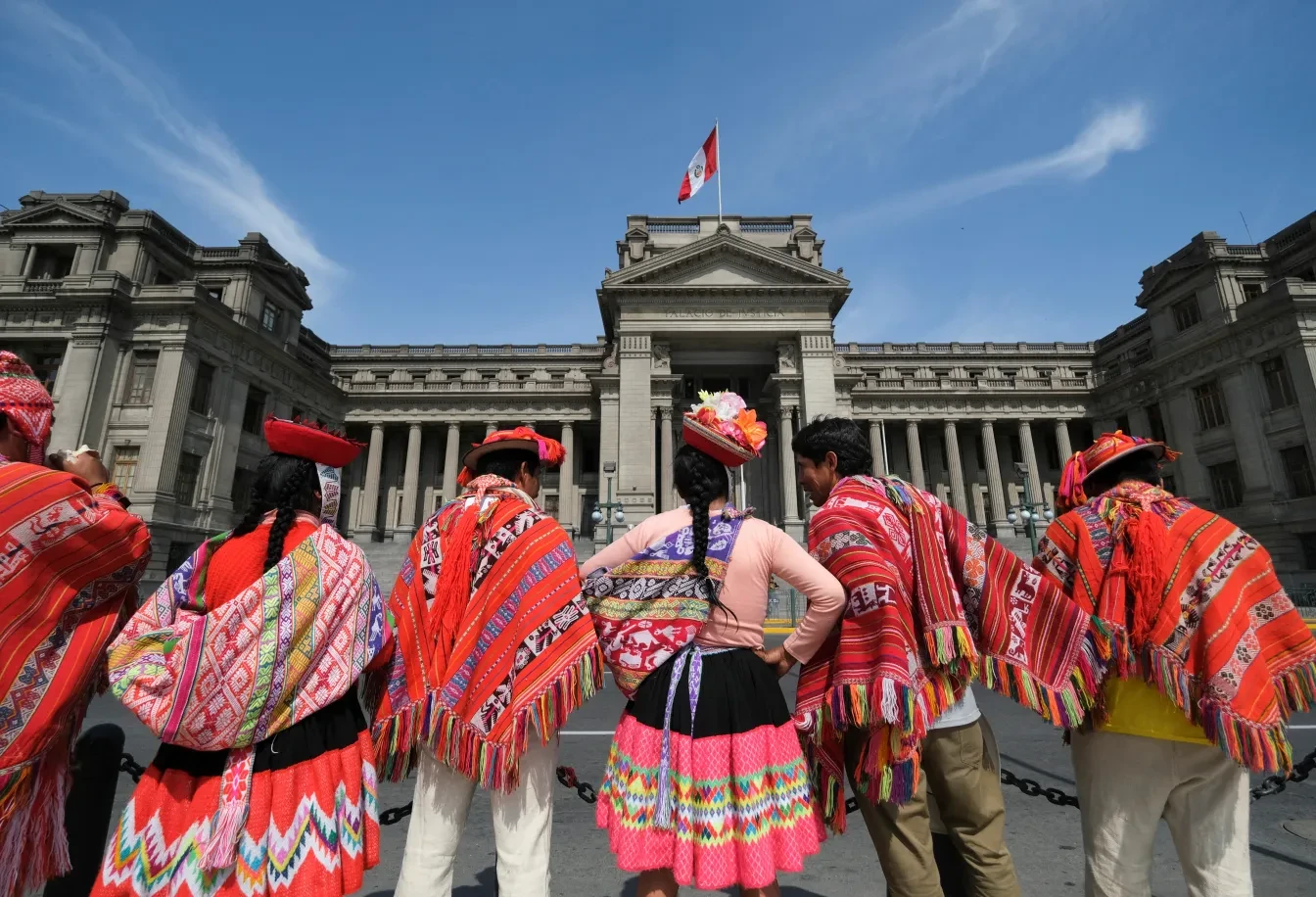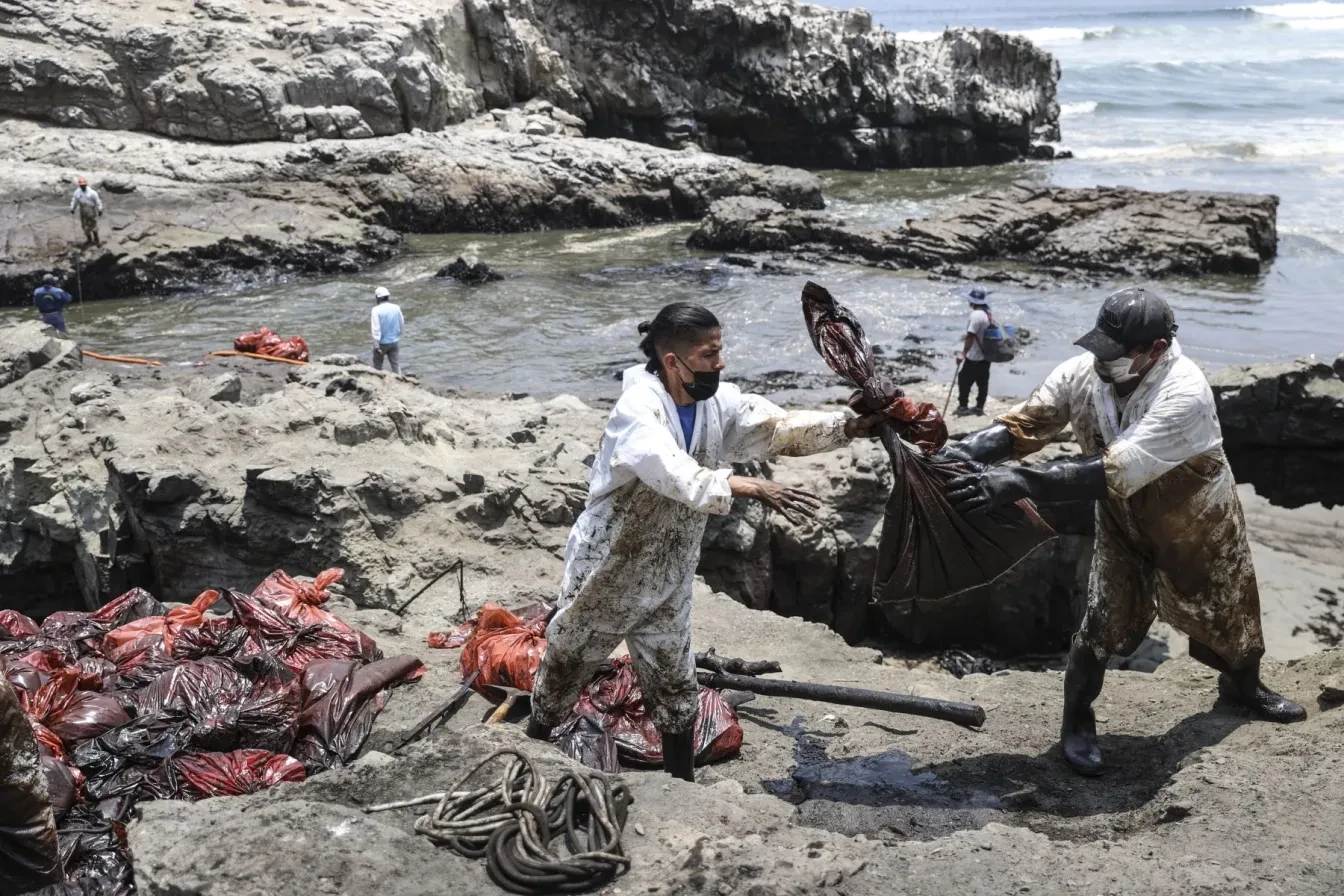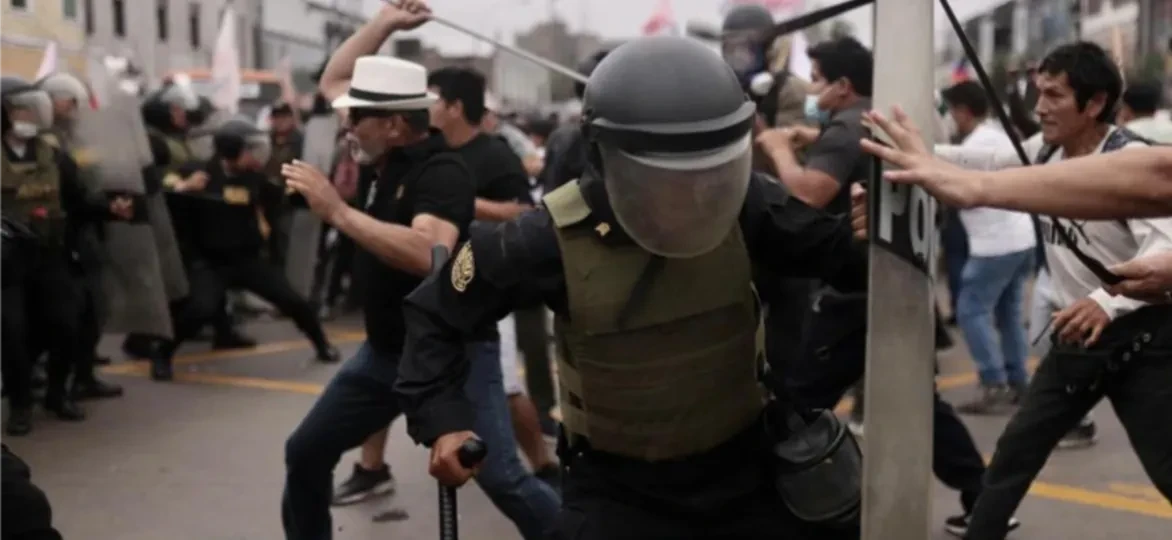Peru Silences NGOs: 5 Questions and Answers About the Anti-NGO Law
Apr 07 2025
4 minutes
A recent change in the law in Peru makes it much harder for NGOs to do their work. Antonio Zambrano, Latin America expert at 11.11.11, explains in 5 answers what exactly was decided, why this law is so problematic, and what impact it has on vulnerable communities and organizations such as 11.11.11.
1. What exactly was decided with the change in the law in Peru?
"On March 12, 2025, the Peruvian Congress approved a change in the law that makes the work of NGOs much more difficult. Peruvian NGOs are now allowed to no longer use foreign aid to file lawsuits against the state. That is problematic, because that money is often needed to help victims of human rights violations."
"Every NGO must also submit a statement in advance from now on request government permission to carry out projects with foreign financing. The Peruvian state will thus have more control and can block projects it does not like. NGOs that do not comply risk heavy fines or even the loss of their official recognition."
2. Why is this law also called the “anti-NGO law”?
"Because the law silences NGOs and critical voices. Organizations are no longer allowed to do their work if it goes against the interests of the state. For example, they are no longer allowed to use foreign aid to go to court when the state violates human rights."
"Many NGOs that stand up for women's rights, indigenous peoples or the environment, are in danger of having to stop their legal work. This is a disaster for vulnerable communities and nature. Furthermore, indigenous communities — or other affected groups — were not consulted about this law, while they should have been consulted with such drastic measures."

This law will force many NGOs that defend women's rights, indigenous peoples or the environment to stop their legal work. That is a disaster for vulnerable communities and nature.
3. What are the concrete consequences for NGOs and the people they defend?
"For NGOs in Peru, it is becoming much more difficult to defend people against injustice. If a project is too critical, the government can block it. This creates uncertainty and fear. Some organizations will censor themselves, for fear of sanctions or closure."
"Also international organizations such as 11.11.11 are at risk. If they give money to a local project that the government doesn't like, they can be punished. And that mainly affects people in vulnerable situations: victims of police violence, isolated indigenous communities, women and people who lose their land to oil extraction, deforestation or mining."
"From consequences are already visible today. More than 30 ongoing lawsuits by indigenous communities living in isolation are at risk of being halted because they are losing their legal support.”
4. Why is this law so disturbing?
"Because NGOs are the only access to justice for many peopleFor years, they have used foreign aid to legally challenge human rights violations — often when the Peruvian state itself is responsible. Now that the use of these resources is being restricted, victims are being left out in the cold and impunity continues to exist."
"The government has all the means to defend itself. But ordinary citizens — especially in remote or poor areas — do not have them. This law takes away their voice. And also: it puts pressure on NGOs and activists to remain silent for fear of sanctions."
“And this is not only happening in Peru. Across Latin America we are seeing a dangerous trend where governments are introducing similar laws. Civil society is under great pressure."

11.11.11 works together with Belgian and Peruvian partners to map the impact of the law and to look for ways to continue supporting local organizations in their legal battles.
5. How do NGOs and organizations such as 11.11.11?
"Peruvian NGOs do not give up easily. They go to the Constitutional Court and organize actions together with indigenous movements, women's movements and other allies, to put pressure on the government to prevent the law from being implemented."
"Also internationally organisations such as Amnesty International and networks such as EU-LAT are sounding the alarm. They warn of the democratic backsliding in Peru and the restriction of fundamental rights, such as the right to legal defense and freedom of association."
"11.11.11 works together with Belgian and Peruvian partners to map the impact of the law and to look for ways to continue to support local organizations in their legal battles."
Continue to support our partners in their fight for human rights
Laws like those in Peru make it increasingly difficult for local organizations to stand up for human rights, the environment and vulnerable communities.
With your support we can continue to support our partners.


